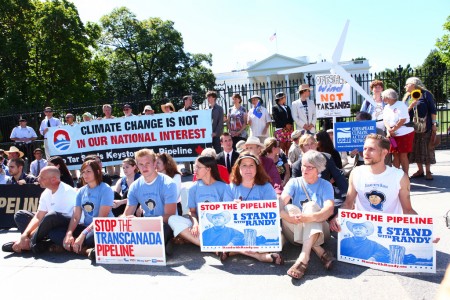The way in which many political conservatives are obsessed with crime but unconcerned about environmental degradation strikes me as strange and internally inconsistent. It seems to me that pollution and crime are generally objectionable for the same reasons, and that the justification for the state making effort to reduce both is similar as well.
The two types of crime that are most relevant here are those that involve financial harm and those involving physical harm to a person. Burglary is an example of the first sort, while assault is an example of the second. When someone commits a burglary or assault, they are choosing to assert their will on an innocent victim, who suffers either in terms of lost goods or in terms of personal injury or death. The state recognizes this assertion as unfair and something to be avoided, and creates and enforces criminal sanctions as a mechanism for discouraging these behaviours. We see situations in which groups of criminals have complex organizations that produce large revenues through crime as exceptionally objectionable, and exceptionally worthy of intervention by the state.
When a company or an individual chooses to emit toxic substances into the air or the water – or when they choose to dangerously alter the climate – they are imposing the same sort of harm on the general public that the burglar or the assailant does. The acid rain resulting from the operation of a coal-fired power plant could cause economic harm, such as when it kills fish or trees. Pollution also causes personal injury and death.
So how can many conservatives call for ‘cracking down’ on crime, while simultaneously criticizing environmental regulations and promising to scale them back for the benefit of business? The most plausible explanation seems to be an unwillingness of inability to look beyond the most immediate consequences of an action. When a man in a mask stabs another man and takes his wallet, it is clear what has taken place. The full consequences are less clear when a mine or factory seems to be producing useful products, generating profits, and producing employment – while simultaneously hurting or killing people through the production of toxic by-products or contribution to dangerous climate change.
From a more psychological perspective, perhaps the difference in intention is given undue weight by those who do not see crime and environmental damage as morally comparable. Perhaps criminals bear more moral responsibility because they recognize that their behaviours inescapably involve undeserved harm imposed on others. Of course, the same is true of educated polluters. It is no longer credible to claim that dumping mercury into the water or carbon dioxide into the air doesn’t harm people, or that people who choose to carry out these economic processes do not choose to produce these outcomes.
Perhaps the difference in viewpoint is logically connected to the way in which the recognition of interdependence undermines libertarianism. If you are determined to believe that people have an absolute right to undertake certain activities – such as driving in cars, flying in planes, or raising large numbers of pigs in industrial factory farming circumstances – then you must either deny the reality that these activities harm other people or implicitly argue that the people doing the harming have a right that takes precedence over the right that by-standers have to avoid being harmed.
Obviously, I don’t think either of these arguments are very convincing, which brings me back to my initial point. It doesn’t make much sense to get all hot and bothered about crime and to manifest that concern with tough new laws and longer sentences while simultaneously ignoring the harm that pollution causes to people and pressing for less restrictive regulations on polluting activities. If we respect the right of people not be be harmed by criminals, we should also respect their right not to be harmed by polluters.

